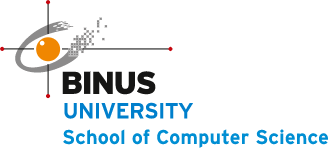Computer Science – Mathematics
Introduction
Vision & Mission
Program Objective
Expected Learning Outcomes
Prospective Career of The Graduate
Course Structure
Prerequisites
Quality Controlled Examination (UPM)
Introduction
Mathematics plays a fundamental role in various aspects of science, technology, and society. Its theoretical framework provides essential tools for analyzing patterns, solving complex problems, and making data-driven decisions. In today’s rapidly evolving world, mathematics contributes significantly to fields such as artificial intelligence, finance, logistics, data analysis, and scientific modeling. The Mathematics study program is designed to develop students' analytical thinking, logical reasoning, and problem-solving skills through a rigorous and comprehensive curriculum. Students will explore a wide range of mathematical fields including pure mathematics, applied mathematics, statistics and computational mathematics. The program is designed to be completed within 4 years. To enhance students’ competencies and provide professional exposure, the program also offers opportunities such as industrial internships, research projects, and entrepreneurship experiences for one semester. Catalog 2022/ B2026 (PDF), Catalog 2023/ B2027 (PDF), Catalog 2024/ B2028 (PDF)Vision
A World Class study program by providing excellent educational experiences in Computational Mathematics, Fostering and Empowering the Society in Serving and Building the Nation.Mission
The mission of Mathematics Program is to contribute to the global community through the provision of world-class education by:- Educating students to effectively apply their educational experiences in Computational Mathematics to solve real-world problems.
- Preparing our graduates to develop exemplary soft skills & technical skills required as ICT professionals, leaders and entrepreneurs in global market.
- Promoting high impact research that contributes to the nation.
- Fostering BINUSIAN as lifelong learners through self-enrichment.
- Empowering BINUSIAN to continuously improve society’s quality of life.
Program Objective
The objectives of the program are:- Graduates will become successful professionals in ICT fields;
- Graduates will obtain employment in global companies or become entrepreneurs;
- Graduates will obtain professional certification or continue their study to the postgraduate level;
- Graduate will have ability to pursue higher degree of education.
Student Outcomes
After completing the study, graduates are:- Able to explore, logical reasoning, generalization abstraction, and formal proof in formulating and model problems with specific variables and assumptions through mathematical approach with or without mathematical software.
- Able to develop mathematical models of problems and analyze their performance and draw contextual conclusions
- Able to conduct data science project flow to solve real business and industry problems
- Able to develop software by implementing mathematical models.
- Able to apply interdisciplinary knowledge and skills in developing alternative solutions for problem-solving
Prospective Career of the Graduates
The graduates of the Mathematics study program can follow careers in:
- Mathematical Modeler or Simulation Specialist – creating models to simulate real-world systems in areas like epidemiology, engineering, and environmental science.
- Operations Research Analyst – applying mathematical methods to optimize processes in logistics, manufacturing, and service industries.
- Data Analyst or data scientist – analyzing and interpreting complex data for decision-making in business, healthcare, government, and other sectors.
- Quantitative Analyst – developing mathematical models for risk analysis and financial forecasting, particularly in banking, insurance, and investment sectors.
- Mathematics Educator or Academic Researcher – teaching and conducting research in schools, universities, or research institutions.
- Actuary – analyzing financial risks using mathematics, statistics, and financial theory.
- Graduate Studies – pursuing advanced studies (Master’s or PhD) in mathematics, data science, statistics, or other related fields.
Course Structure for Binusian 2028
1) This course is delivered in English
2) Global Learning Systems Course
Free Electives:
-) For Free Electives, students are required to choose from the list of Free Electives in Appendix.
Foreign Language Courses:
Students will take foreign language courses according to Beelingua Placement Test results. See foreign language courses appendix for the details. Students must pass with a minimum Grade of C.
Appendix: Free Electives (6th Semester)
Students will receive information about Free Electives during the registration period.
Enrichment Program (7th Semester):
-) Student will take one of enrichment program tracks (off campus). See enrichment appendix for the tracks detail.
Enrichment Track Scheme
| Track | Semester 7 | ||||||
| IN | RS | EN | CD | SA | IS | etc | |
| 1 | v | ||||||
| 2 | v | ||||||
| 3 | v | ||||||
| 4 | v | ||||||
| 5 | v | ||||||
| 6 | v | ||||||
Notes:
IN : Certified Internship
RS : Certified Research
EN : Certified Entrepreneurship
CD : Certified Community Development
SA : Certified Study Abroad
IS : Certified Specific Independent Study
etc : Study Program Special Purposes
Prerequisites for Binusian 2028
There is no prerequisite for this programQuality Controlled Courses for Binusian 2028
Student should pass all of these quality controlled courses as listed below:| No | Course Code | Course Name | Minimal Grade |
| 1. | CHAR6013016 | Character Building: Pancasila | B |
| 2. | COMP6047016 | Algorithm and Programming* | C |
| 3. | COMP6798016 | Program Design Methods* | C |
| 4. | COMP6048016 | Data Structures* | C |
| 5. | MATH6183016 | Scientific Computing* | C |
| 6. | MATH6190016 | Advanced Calculus II* | C |
| 7. | STAT6157016 | Data Mining and Visualization | C |
| 8. | MATH6187016 | Machine Learning | C |
| 9. | MATH6188016 | Differential Equations* | C |
| 10. | MATH6018016 | Modern Algebra | C |
| 11. | ENPR6312001 | Venture Creation | C |
